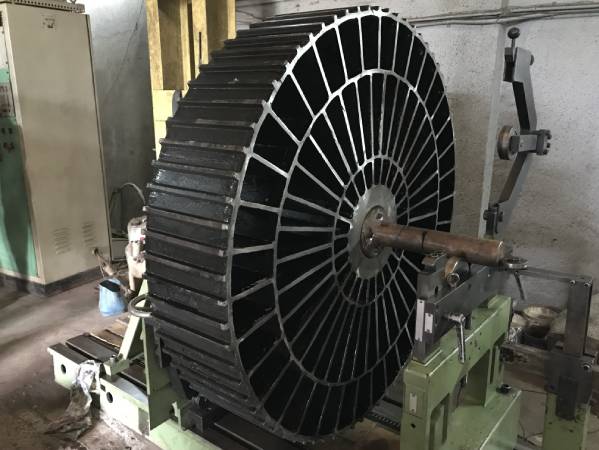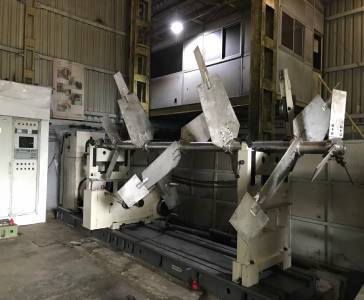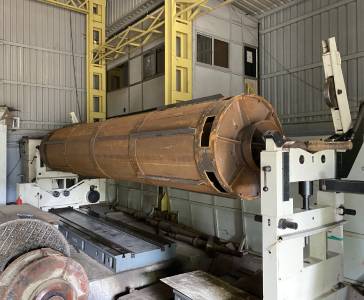
Dynamic Balancing is a method used to eliminate vibration created by unequal centrifugal forces introduced during manufacture. These forces are usually a result of density irregularities in the parent material and/or machining eccentricities and can in many cases be equivalent to several times the rotor’s weight at rotational speed.
A rotating mass would be considered to be dynamically balanced when no centrifugal force or couple is produced during rotation. A balanced system can rotate without requiring external force or couple other than that required to support its weight. Unbalance in such a system would place stress on the bearings, resulting in undesirable vibration.

Accurate Balancing Equipments offers In-House Dynamic Balancing Services for all the rotating components having
Weight:
0.5 kg to 30 tons
Length Upto:
upto 13.5 meter
Diameter:
upto 5 meter
Speed:
upto 3500 RPM
We have installed world renowned SCHENCK Dynamic Balancing Machines with up-dated technology.
Our Balancing capacity is from 0.500 Kg. to 30 Tons, on different Models of SCHENCK Machines.
This enables us to service varied Balancing needs of our Customers.
All balancing is performed to the industry ISO standard for Dynamic Balancing for the application and part supplied.
ISO 1940/1 for Dynamic Balancing G1, G2.5, G6.3 as per the Job application and customer requirement.
In some cases, a component requires a mandrel or modification to enable either mounting in the machine or attachment of correction weights. Our experienced engineers can design and manufacture the necessary parts, taking into account the required tolerance.
The dynamic balancing process will help save money and keep equipment in working order for years to come!
We provide Dynamic Balancing Services to various Industrial Sectors. These services are availed by OEM (Mass / Bulk Production), Process Plants, Engineering Workshop etc.


Mismatched lengths of keys and keyways
Parts haven't been assembled properly
Shifting mass due to lose parts or poorly Tapered hub fits
Structure Level Not Maintain as per Machine Standard
Manufacturing Defect
Thermal and mechanical distortion
Impeller erosion
Previous balancing attempts have been unsuccessful
Internal part corrosion
Dust deposition / to remove dirt build-up
Casting imperfections, voids and inclusions
Minimizes noise.
Extends bearing life.
Lowers energy costs
A well-balanced electric motor is a quiet electric motor.
Low vibration
Increase productivity
Increase bearing life
Reduces structural stress.
Generators
Compressors
Turbines
Process rolls
Couplings
All rotating parts
High-speed tooling & grinding wheels
Fans and blowers
Pump impellers
Electrical motor rotors
Process rolls & pulleys
Air pulleys and sheaves
Compressor components
Gears & crankshafts
Bearing spindle assemblies
Centrifuges baskets & drums
Printing rollers & dum
Cutting tools & spm rotors
Electric motor armatures
Fans and blowers
Pump impellers
All types of drums
Spindle assemblies and shafts
Centrifuges
Flywheels
Pump impellers
Motor rotors
Fans and blowers
Air pulleys and sheaves
Gears
Crankshafts
Turbine rotors
Fly wheels & pulleys
Generators & motor rotors